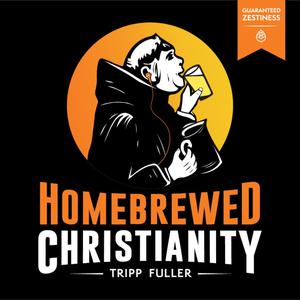
Homebrewed Christianity Podcast
Dr. Tripp Fuller | Theologian, Philosopher, Minister
progressive Christian theology that doesn't suck
- 1 hour 9 minutesWhitehead’s Universe: a Guide to Thinking Process
My friend and philosopher, Dr. Andrew Davis, is back on the podcast to bring us a stellar introduction to Alfred North Whitehead's Process philosophy. “Process philosophy” is wider than the work of Alfred North Whitehead (1861–1947), but the depth and dynamism of his “philosophy of organism” have made him the defining figure of the modern process tradition. His beloved wife Evelyn once used the metaphor of a prism to describe his thinking: “It must be seen not from one side alone but from all sides, then from underneath and overhead. So seen, as one moves around it, the prism is full of changing lights and colors. To have seen it from one side only is to not have seen it.” In this conversation, Dr. Davis walks us through 5 different sides, lights, and colors belonging to Whitehead’s prismatic universe from the microscopic to the macroscopic, and in direct relation to human experience as an expression of the cosmos.
If this conversation is intriguing and you want a guided tour of Whitehead's philosophy, go join up for the class Whitehead's Universe. I am so excited about Andrew's project and having a new compelling introduction to process philosophy for the people.
You can WATCH the conversation on YouTube
Andrew M. Davis is an American process philosopher, theologian, and scholar of the cosmos. He is the academic and research director for the Center for Process Studies where he researches, writes, teaches, and organizes conferences on various aspects of process-relational thought (Whitehead and Beyond). An advocate of metaphysics and meaning in a hospitable universe, he approaches philosophy as the endeavor to systematically think through what reality must be like because we are a part of it. He is the author, editor, and co-editor of nearly a dozen books including Mind, Value, and Cosmos: On the Relational Nature of Ultimacy, Process Cosmology: New Integrations in Science and Philosophy, and Metaphysics of Exo-Life: Toward a Constructive Whiteheadian Cosmotheology. This course is based upon drafts of his next book which is comprehensive, yet conversational, introduction to Whitehead’s universe.
Andrew’s Previous visits to the podcast
UPCOMING ONLINE CLASS - Truth in Tough Times: Global Voices of Liberation
I am thrilled to announce our upcoming class with Joerg Rieger and a host of liberation theologians from across the globe. Our goal is to create an experience where participants will get a clear and compelling account of contemporary liberation theology and meet the most critical voices of our generation. As always, then lass is donation-based, including 0. Get info and join up at www.TruthInToughTimes.com
_____________________
Join my Substack - Process This!
Join our class - TRUTH IN TOUGH TIMES: Global Voices of Liberation
Spend a week with Tripp & Andrew Root in Bonhoeffer’s House in Berlin this June as part of the Rise of Bonhoeffer Travel Learning Experience. INFO & DETAILS HERE
Get access to over 45 of our online classes at TheologyClass.com
Follow the podcast, drop a review, send feedback/questions or become a member of the HBC Community.
Learn more about your ad choices. Visit megaphone.fm/adchoices
11 January 2025, 9:29 pm - 1 hour 1 minuteA Tripp-y Tutorial: The Romance of Learning & Tripp’s Elevator Pitch for Philosophy
In this episode, I team up with our producer, Josh Gilbert, for an experimental format inspired by our podcast planning sessions, where Josh often brings up intriguing questions he’s gathered while editing. Together, we explore how our initial infatuation with ideas can grow into a deeper understanding and mastery and how our personal biases inevitably shape our philosophical inquiries.
We discuss the significance of philosophy in making sense of existence, agency, and how we apply ideas in everyday life. We talk about the value of curiosity and the ongoing journey of learning across the humanities, emphasizing the need to engage with philosophical texts critically and passionately. Josh pressed me on the distinction between plausibility and intensity of faith commitments, the existential register’s importance in understanding religious identity, and how modern empiricism and cultural narratives influence individual agency.
Throughout the conversation, we weave in insights from thinkers like Alfred North Whitehead, Hans-Georg Gadamer, Søren Kierkegaard, Paul Tillich, Karl Barth, Dietrich Bonhoeffer, J.R.R. Tolkien, Martin Heidegger, Philip Goff, and Charles Taylor. Together, we explore how these voices create a community of inquiry that invigorates our understanding of life and existence, showing how philosophy can shape what we think and how we live.
To get the entire conversation, all podcast episodes ad-free, and support our work, consider joining the Process This on SubStack or get access to our entire catalog of classes & all the rest by joining up at Theology Class.
UPCOMING ONLINE CLASS - Truth in Tough Times: Global Voices of Liberation
I am thrilled to announce our upcoming class with Joerg Rieger and a host of liberation theologians from across the globe. Our goal is to create an experience where participants will get a clear and compelling account of contemporary liberation theology and meet the most critical voices of our generation. As always, then lass is donation-based, including 0. Get info and join up at www.TruthInToughTimes.com
_____________________
Join my Substack - Process This!
Join our class - THE RISE OF BONHOEFFER, for a guided tour of Bonhoeffer's life and thought.
Spend a week with Tripp & Andrew Root in Bonhoeffer’s House in Berlin this June as part of the Rise of Bonhoeffer Travel Learning Experience. INFO & DETAILS HERE
Follow the podcast, drop a review, send feedback/questions or become a member of the HBC Community.
Learn more about your ad choices. Visit megaphone.fm/adchoices
5 January 2025, 5:28 pm - 57 minutes 6 secondsGrace Ji-Sun Kim: When God Became White
In this episode, Grace Ji-Sun Kim discusses her provocative new book, When God Became White. We delve into challenging topics like the implications of a colonialist legacy on the church, the intersections of race, gender, and religion, and how historical missions have shaped perceptions. We also discuss the representation of Jesus in church life, syncretism in Christianity, and the experiences of Korean immigrants.
Grace Ji-Sun Kim is a professor of theology at Earlham School of Religion and host of the Madang podcast.
You can WATCH the conversation on YouTube.
Previous Episodes with Grace & Susan
- Surviving God
- Godly QnA
- a Theology of Visibility
- What is Intersectional Theology?
- The Prophetic Life of the Spirit
- Embracing the Other and Reading the Bible
- Keeping Hope Alive
Garrett Theological Seminary sponsored this episode. Seminary education isn’t just for pastors. Social awareness of the world’s most pressing problems, robust ethical analysis, empathic biblical wisdom, and courageous leadership are skills you can use across a wide range of vocations. Whether you feel called to care and counseling, public service, prophetic arts, or non-profit management, there’s a degree program at Garrett Seminary that’s right for you. Our global faculty and diverse student body nurture class discussions that reflect the contextual realities in the communities you’ll serve, and our commitment to hands-on learning means you’ll have plenty of opportunities to put that knowledge to use. Located in the heart of Northwestern’s campus, just a short train ride from Chicago, let our city be your training ground. Garrett also offers fully online and hybrid programs. So wherever and whoever you are, apply to begin your fulfilling new career today. Learn more here.
_____________________
Join my Substack - Process This!
Join our class - THE RISE OF BONHOEFFER, for a guided tour of Bonhoeffer's life and thought.
Spend a week with Tripp & Andrew Root in Bonhoeffer’s House in Berlin this June as part of the Rise of Bonhoeffer Travel Learning Experience. INFO & DETAILS HERE
Follow the podcast, drop a review, send feedback/questions or become a member of the HBC Community.
Learn more about your ad choices. Visit megaphone.fm/adchoices
30 December 2024, 12:00 pm - 1 hour 34 minutesDavid Congdon: Demythologizing Advent
In this episode, Dr. David Congdon joins me to discuss Rudolf Bultmann and his Advent preaching. He is infamous for his “demythologizing” approach to scripture, which seeks to uncover the true meaning behind the biblical narratives. Bultmann’s Advent sermons strip away sentimentalism, presenting the Incarnation as a call to authentic existence. We’ll consider how his approach can help us understand Christmas as more than a story, but as a profound encounter with God’s call in our own lives.
You can WATCH the conversation on YouTube
David Congdon is an author, speaker, and scholar working in the area of theology and culture. Originally from Portland, Oregon, he completed a B.A. in English at Wheaton College, acquired an M.Div. and Ph.D. in theology from Princeton Theological Seminary, and have since worked in the publishing industry as an academic acquisitions editor.
Previous Podcast Episodes with David
- Who Is a True Christian?: Contesting Religious Identity in American Culture
- Dialectical Theology
- Bultmann’s Mission of Demythologizing
_____________________
This DECEMBER, we will be exploring the 'Theologians of Crisis' in our online Advent class - Breaking into the Broken World. Join us to learn about Karl Barth, Paul Tillich, Dietrich Bonhoeffer, and Rudolph Bultmann as we explore their thoughts and timely reflections in their Advent/Christmas sermons.
Join my Substack - Process This!
Join our class - THE RISE OF BONHOEFFER, for a guided tour of Bonhoeffer's life and thought.
Spend a week with Tripp & Andrew Root in Bonhoeffer’s House in Berlin this June as part of the Rise of Bonhoeffer Travel Learning Experience. INFO & DETAILS HERE
Follow the podcast, drop a review, send feedback/questions or become a member of the HBC Community.
Learn more about your ad choices. Visit megaphone.fm/adchoices
23 December 2024, 9:52 pm - 1 hour 42 minutesJohn Thatamanil: Tillich and the Advent of New Being
In this episode, I am joined by Dr. John Thatamanil to discuss how Paul Tillich’s theology understands God’s relationship to history and incarnation. We discuss his Christian existentialism, the contrast between Chronos and Karios time, and his vision of the divine. Covering topics from Tillich's understanding of religious socialism to the complexities of conditioned and unconditioned existence, our dialogue offers a rich introductory exploration of Tillich's thought. We also engage the contemporary implications of Tillich's theology, making connections to modern societal issues and the lived reality of faith in challenging times.
You can WATCH this conversation on YouTube
This DECEMBER, we are exploring the 'Theologians of Crisis' in our online Advent class - Breaking into the Broken World. Join us to learn about Karl Barth, Paul Tillich, Dietrich Bonhoeffer, and Rudolph Bultmann as we explore their thoughts and timely reflections in their Advent/Christmas sermons.
Dr. Thatamanil is Professor of Theology & World Religions at Union Theological Seminary in NYC.
Previous Podcasts with John
- Deconstructing Divinity & Embracing Diversity
- God – the Ground, the Between, the Personal
- What we do when we do theology
- A Comparative Theology of Religious Diversity
- Theology Without Walls
- Non-duality, Polydoxy, and Christian Identity
Check out these books by John
- Circling the Elephant: A Comparative Theology of Religious Diversity
- The Immanent Divine: God, Creation And the Human Predicament: God, Creation, and the Human Predicament
- Theology Without Walls: The Transreligious Imperative
_____________________
This DECEMBER, we will be exploring the 'Theologians of Crisis' in our online Advent class - Breaking into the Broken World. Join us to learn about Karl Barth, Paul Tillich, Dietrich Bonhoeffer, and Rudolph Bultmann as we explore their thoughts and timely reflections in their Advent/Christmas sermons.
Join my Substack - Process This!
Join our class - THE RISE OF BONHOEFFER, for a guided tour of Bonhoeffer's life and thought.
Spend a week with Tripp & Andrew Root in Bonhoeffer’s House in Berlin this June as part of the Rise of Bonhoeffer Travel Learning Experience. INFO & DETAILS HERE
Follow the podcast, drop a review, send feedback/questions or become a member of the HBC Community.
Learn more about your ad choices. Visit megaphone.fm/adchoices
19 December 2024, 11:00 am - 1 hour 31 minutesReggie Williams: Is this a Bonhoeffer Moment?
In this episode, I am joined by my partner in The Rise of Bonhoeffer, Dr. Jeffrey Pugh, for a profound conversation with theologian, ethicist, and Bonhoeffer scholar Dr. Reggie Williams. The discussion revolves around Dietrich Bonhoeffer's provocative ethical challenge, particularly drawing from his experience in Harlem. Reggie helps us explore his critique of religion, its relevance to contemporary American issues, and how his theology can inform our response to modern ethical challenges. The conversation also touches on the influence of the Black church tradition, global liberation theology, and practical ways to engage with current sociopolitical issues, including the situation in Palestine.
You can WATCH the conversation on YouTube.
Reggie Williams has just begun screening his new documentary, “The Cloud of Witnesses: Dietrich Bonhoeffer in Harlem 1930/31.” It is a powerful film that focuses on Bonhoeffer’s time in NYC, the witness of the Harlem Renaissance, and the prophetic gospel of Abyssinian Baptist Church. There is no better guide to this vital terrain than Reggie!
Reggie Williams is associate professor of Black theology at St. Louis University and author of Bonhoeffer’s Black Jesus: Harlem Renaissance Theology and an Ethic of Resistance. You can check out his recent essay on the Bonhoeffer film here.
Here’s Reggie’s previous visits to the podcast:
- Bonhoeffer & the Critique of Religion
- Reggie Williams: Bonhoeffer’s Black Jesus
- Debating, Praying, and Living with Tyrants
_____________________
This DECEMBER, we will be exploring the 'Theologians of Crisis' in our online Advent class - Breaking into the Broken World. Join us to learn about Karl Barth, Paul Tillich, Dietrich Bonhoeffer, and Rudolph Bultmann as we explore their thoughts and timely reflections in their Advent/Christmas sermons.
Join my Substack - Process This!
Join our class - THE RISE OF BONHOEFFER, for a guided tour of Bonhoeffer's life and thought.
Spend a week with Tripp & Andrew Root in Bonhoeffer’s House in Berlin this June as part of the Rise of Bonhoeffer Travel Learning Experience. INFO & DETAILS HERE
Follow the podcast, drop a review, send feedback/questions or become a member of the HBC Community.
Learn more about your ad choices. Visit megaphone.fm/adchoices
17 December 2024, 2:38 pm - 1 hour 32 minutesAndrew Root: Incarnation as Resistance
In this episode, I am joined by Dr. Andrew Root to delve into the Advent sermons of Dietrich Bonhoeffer, discussing the context and impact of his work. We unpack Bonhoeffer's experiences in Barcelona, Cuba, Berlin, and London, touching on his interaction with his time's ideological and theological crises. The conversation also includes insights into Bonhoeffer’s relationships, his formative years, and the implications of his theological perspectives. Bonhoeffer’s emphasis on waiting, his critiques of ideology, and his reflections on community and personhood are given attention.
You can WATCH the conversation on YouTube
This DECEMBER, we will be exploring the 'Theologians of Crisis' in our online Advent class - Breaking into the Broken World. Join us to learn about Karl Barth, Paul Tillich, Dietrich Bonhoeffer, and Rudolph Bultmann as we explore their thoughts and timely reflections in their Advent/Christmas sermons.
_____________________
This DECEMBER, we will be exploring the 'Theologians of Crisis' in our online Advent class - Breaking into the Broken World. Join us to learn about Karl Barth, Paul Tillich, Dietrich Bonhoeffer, and Rudolph Bultmann as we explore their thoughts and timely reflections in their Advent/Christmas sermons.
Join my Substack - Process This!
Join our class - THE RISE OF BONHOEFFER, for a guided tour of Bonhoeffer's life and thought.
Spend a week with Tripp & Andrew Root in Bonhoeffer’s House in Berlin this June as part of the Rise of Bonhoeffer Travel Learning Experience. INFO & DETAILS HERE
Follow the podcast, drop a review, send feedback/questions or become a member of the HBC Community.
Learn more about your ad choices. Visit megaphone.fm/adchoices
12 December 2024, 2:59 pm - 1 hour 30 minutesTravis McMaken: Karl Barth & The Incarnation
In this episode, Travis McMacken joins the fun as we explore the life and theology of Karl Barth, the original crisis theologian. In this insightful conversation, we dive into Barth's theological perspective, his reaction to World War I, and his thoughts on the incarnation and revelation. The discussion covers how Barth's theology evolved, his views on the role of the church in times of crisis, and the contemporary relevance of his ideas.
This DECEMBER, we will be exploring the 'Theologians of Crisis' in our online Advent class - Breaking into the Broken World. Join us to learn about Karl Barth, Paul Tillich, Dietrich Bonhoeffer, and Rudolph Bultmann as we explore their thoughts and timely reflections in their Advent/Christmas sermons.
WATCH the conversation on YouTube
W. Travis McMaken, PhD, is the Butler Bible Endowed Professor of Religion and Associate Dean of Arts and Humanities at Lindenwood University in St. Charles, MO. He is a Ruling Elder in the Presbyterian Church (U.S.A.).
McMaken’s writing engages primarily with 20th century theology (esp. Protestant theology, with specialization in Karl Barth, Helmut Gollwitzer, and T. F. Torrance) while working constructively on the subjects of sacramentology, ecclesiology, and political theology.
Previous Episodes with Travis include:
- The Spirituality & Politics of Karl Barth
- Dialectical Theology
- Our God Loves Justice
- Why Go Barthian?
_____________________
This DECEMBER, we will be exploring the 'Theologians of Crisis' in our online Advent class - Breaking into the Broken World. Join us to learn about Karl Barth, Paul Tillich, Dietrich Bonhoeffer, and Rudolph Bultmann as we explore their thoughts and timely reflections in their Advent/Christmas sermons.
Join my Substack - Process This!
Join our class - THE RISE OF BONHOEFFER, for a guided tour of Bonhoeffer's life and thought.
Spend a week with Tripp & Andrew Root in Bonhoeffer’s House in Berlin this June as part of the Rise of Bonhoeffer Travel Learning Experience. INFO & DETAILS HERE
Follow the podcast, drop a review, send feedback/questions or become a member of the HBC Community.
Learn more about your ad choices. Visit megaphone.fm/adchoices
9 December 2024, 11:00 am - 1 hour 6 minutesTheopoetics: What We Talk About When We Talk About God
What do we talk about when we talk about God? There are so many problems with the inherited concept, language, and vision of God, that ‘god’ might just need a time out. You would be surprised how familiar theologians are with ‘god’ problems! One cluster of constructive responses to the predicament of divine discourse is theopoetics. If you ever wondered what would happen if 600 people got to nerd out in person with a bunch of craft beverages and sat down to hear three outstanding theologians tackle this problem, then you were likely at Theology Beer Camp. There, I was joined by Catherine Keller, Kristy Whaley, and Ilia Delio to wrestle with the language we use about ‘god’ and the theopoetic turn in theology.
If you want to get info, updates, and access to pre-sale tickets for Theology Beer Camp 2025, you can sign up here.
Kristy Whaley is faculty at St. Petersburg College, where she teaches both religion and humanities. Her interdisciplinary interests are primarily centered on Christian theology and literature, but often also stray into pop culture, mainly about Buffy the Vampire Slayer and Lost. Her most recent book, Wounded Images, is a work in theopoetics. She is also a podcaster and you can put her in your earbuds by checking out Theology on the Rocks.
Ilia Delio, OSF, PhD is a Franciscan Sister of Washington, DC, and American theologian specializing in science and religion, with interests in evolution, physics, and neuroscience and the import of these for theology.
Catherine Keller is George T. Cobb Professor of Constructive Theology in The Graduate Division of Religion of Drew University. If you are new to Catherine Keller and Process Theology this is the book to start with – On the Mystery: Discerning Divinity In Process.
_____________________
This DECEMBER, we will be exploring the 'Theologians of Crisis' in our online Advent class - Breaking into the Broken World. Join us to learn about Karl Barth, Paul Tillich, Dietrich Bonhoeffer, and Rudolph Bultmann as we explore their thoughts and timely reflections in their Advent/Christmas sermons.
Join my Substack - Process This!
Join our class - THE RISE OF BONHOEFFER, for a guided tour of Bonhoeffer's life and thought.
Spend a week with Tripp & Andrew Root in Bonhoeffer’s House in Berlin this June as part of the Rise of Bonhoeffer Travel Learning Experience. INFO & DETAILS HERE
Follow the podcast, drop a review, send feedback/questions or become a member of the HBC Community.
Learn more about your ad choices. Visit megaphone.fm/adchoices
5 December 2024, 2:04 pm - 1 hour 28 minutesSimon Critchley: Mysticism & Humanity
In this episode, I got to talk with Simon Critchley about his new book Mysticism. We delve into Critchley's journey towards exploring mysticism, his reflections on modernity, and his discussions on key figures like William James, Julian of Norwich, and Meister Eckhart. We also discuss the importance of reading and understanding mystical texts, the role of prayer, and how modernity has impacted our perception of faith and spirituality. His engagement with mysticism beyond the confessional boundaries in which it so often emerges makes the topic and the book a timely reflection for our contemporary spiritual crisis.
Simon Critchley has written over twenty books, including studies of Greek tragedy, David Bowie, football, suicide, Shakespeare, how philosophers die, and a novella. He is the Hans Jonas Professor of Philosophy at the New School for Social Research in New York and a Director of the Onassis Foundation. As co-editor of The Stone at the New York Times, Critchley showed that philosophy plays a vital role in the public realm.
You can WATCH the conversation on YouTube
_____________________
This DECEMBER, we will be exploring the 'Theologians of Crisis' in our online Advent class - Breaking into the Broken World. Join us to learn about Karl Barth, Paul Tillich, Dietrich Bonhoeffer, and Rudolph Bultmann as we explore their thoughts and timely reflections in their Advent/Christmas sermons.
Join my Substack - Process This!
Join our class - THE RISE OF BONHOEFFER, for a guided tour of Bonhoeffer's life and thought.
Spend a week with Tripp & Andrew Root in Bonhoeffer’s House in Berlin this June as part of the Rise of Bonhoeffer Travel Learning Experience. INFO & DETAILS HERE
Follow the podcast, drop a review, send feedback/questions or become a member of the HBC Community.
Learn more about your ad choices. Visit megaphone.fm/adchoices
3 December 2024, 10:00 am - 1 hour 26 minutesEleanor McLaughlin: Bonhoeffer's Unconscious Christianity: Engaging with a World Come of Age
In this episode, I talk with Dr. Eleanor McLaughlin, author of Unconscious Christianity and Dietrich Bonhoeffer's Late Theology. We discuss Bonhoeffer's influence on modern theology, the concept of unconscious Christianity, Bonhoeffer's changing views, and the relevance of his work today. Eleanor shares her journey into Bonhoeffer studies, the challenges of interpreting his work, and her insights into his lesser-known fiction and poetry. The conversation also touches on topics like the theology of the cross, religionless Christianity, and Bonhoeffer's ethical commitments in facing the challenges of his time.
Spend a week with Tripp & Andrew Root in Bonhoeffer’s House in Berlin this June as part of the Rise of Bonhoeffer Travel Learning Experience. INFO & DETAILS HERE
Join me this DECEMBER for our open online class exploring the 'Theologians of Crisis' - Breaking into the Broken World. Join us to learn about Karl Barth, Paul Tillich, Dietrich Bonhoeffer, and Rudolph Bultmann as we explore their thoughts and timely reflections in their Advent/Christmas sermons.
Want to learn more about Bonhoeffer? Join our open online companion class, The Rise of Bonhoeffer, and get access to full interviews from the Bonhoeffer scholars, participate in deep-dive sessions with Tripp and Jeff, unpack curated readings from Bonhoeffer, send in your questions, and join the online community of fellow Bonhoeffer learners. The class is donation-based, including 0. You can get more info here.
Dr. McLaughlin is Tutor in Theology at Ripon College Cuddesdon, with a focus on doctrine and ethics. She holds theology degrees from the University of Oxford (BA and DPhil) and the University of Geneva (Maîtrise en Théologie). Her research interests include the life and thought of Dietrich Bonhoeffer, theological anthropology and disability theology. She contributed to BBC Radio 4's programme 'In Our Time' on Bonhoeffer in 2018, and is a trustee of the charity Project Bonhoeffer.
Ellie's publications include Unconscious Christianity in Bonhoeffer’s Late Theology: Encounters with the Unknown Christ. Foreword by Rowan Williams (Lexington Books/Fortress Academic, 2020), and ‘Disability, Technology, and Human Flourishing,’ in Human Flourishing in a Technological World: A Theological Vision, edited by Jens Zimmermann and Michael Burdett (Oxford University Press, forthcoming 2021).
Previously, Dr. McLaughlin worked at Cuddesdon from Sarum College, where she ran the postgraduate programmes in Theology, Imagination and Culture. She co-ordinated the MTh at the Faculty of Theology and Religion at the University of Oxford, and was Lecturer in Theology and Ethics at Regent's Park College. Ellie lives in Oxford with her husband Luke and her cat Bertie. She enjoys good food with friends, reading and travelling.
You can WATCH the conversation on YouTube
_____________________
This DECEMBER, we will be exploring the 'Theologians of Crisis' in our online Advent class - Breaking into the Broken World. Join us to learn about Karl Barth, Paul Tillich, Dietrich Bonhoeffer, and Rudolph Bultmann as we explore their thoughts and timely reflections in their Advent/Christmas sermons.
Join my Substack - Process This!
Join our class - THE RISE OF BONHOEFFER, for a guided tour of Bonhoeffer's life and thought.
Go with me to Berlin to spend a week in Bonhoeffer's House!
Follow the podcast, drop a review, send feedback/questions or become a member of the HBC Community.
Learn more about your ad choices. Visit megaphone.fm/adchoices
28 November 2024, 12:00 pm - More Episodes? Get the App
- https://trippfuller.com
- en-US
Your feedback is valuable to us. Should you encounter any bugs, glitches, lack of functionality or other problems, please email us on [email protected] or join Moon.FM Telegram Group where you can talk directly to the dev team who are happy to answer any queries.
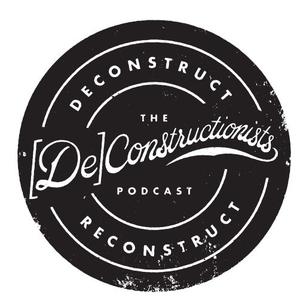 The Deconstructionists
The Deconstructionists
 The Bible For Normal People
The Bible For Normal People
 You Have Permission
You Have Permission
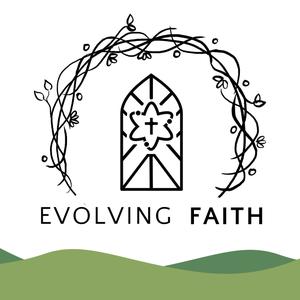 The Evolving Faith Podcast
The Evolving Faith Podcast
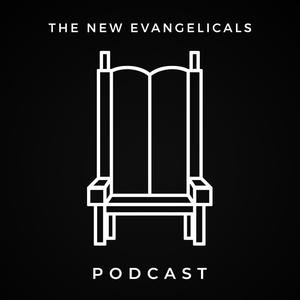 The New Evangelicals Podcast
The New Evangelicals Podcast
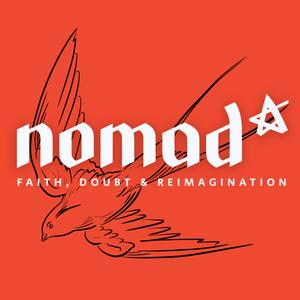 Nomad Podcast
Nomad Podcast